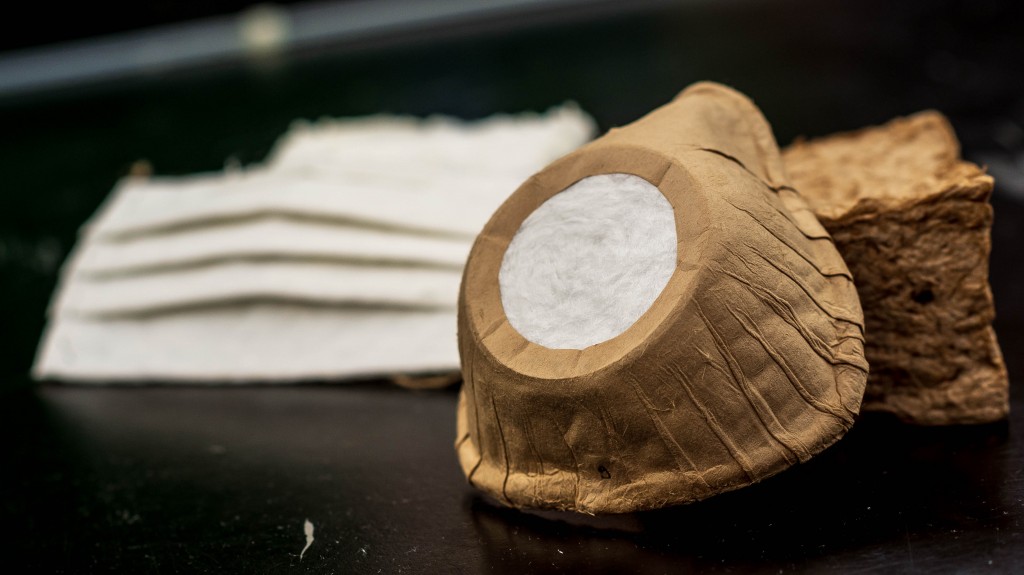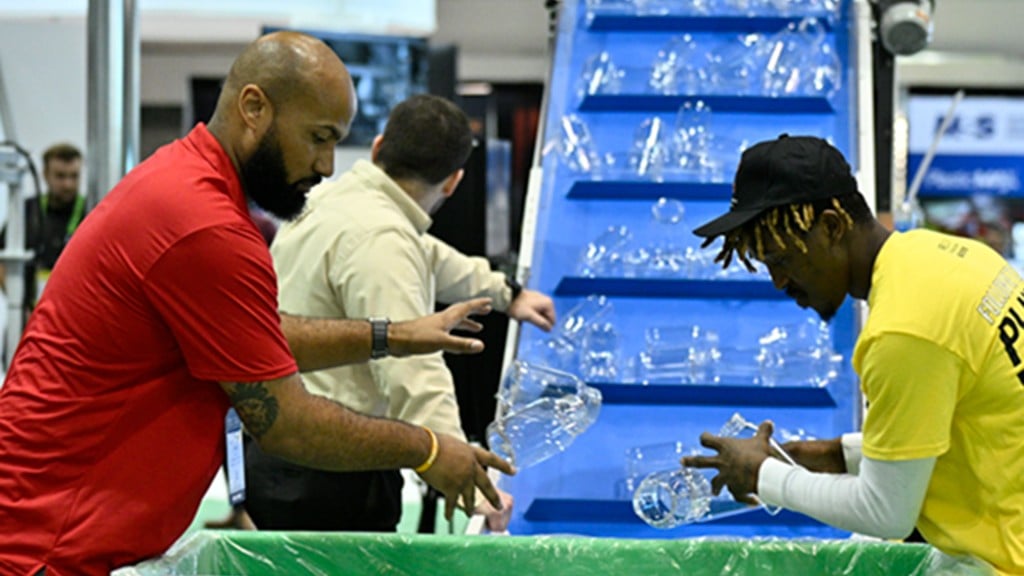
As part of UBC's Faculty of Applied Science, the BioProducts Institute is developing ways to use renewable resources existing in nature as alternative solutions to fossil fuel derived materials, including addressing the waste management implications of the increased demand for single-use plastics since the start of the COVID-19 pandemic.
One major development has been the Can Mask: a biodegradable face mask created with natural cellulosic fibres and nano-materials made from wood-based products that match the performance of disposable polypropylene masks. (Shown above.)
"It allows breathability and, at the same time, is very effective in stopping small particles coming through," explains Orlando Rojas, Professor and Canada Excellence Research Chair, and Scientific Director at the BioProducts Institute.
Since the onset of COVID, the demand for single-use plastics has spiked an estimated 40 percent worldwide. There has been an unprecedented increase in food take-out, goods deliveries, and use of plastic grocery bags over reusable fabric totes in order to minimize viral transmission. This past April, Vancouver collected 3,500 tonnes of garbage from single-family homes—a 28 percent increase from 2019. Responding to COVID has caused Vancouver, and communities everywhere, to lose ground in their efforts to reduce plastic use. The environmental consequences are poised to be globally devastating.
Along with single-use plastics, discarded disposable face masks are one of the most visibly obvious signs of COVID's environmental impact. Birds and marine life are getting entangled in them, in the same way they do with plastic six-pack rings. And what's just as dangerous is the pandemic's less visible environmental impact, such as plastic contaminating water in treatment facilities. The fate of these non-decomposable materials is also contributing to COVID's heavy carbon footprint, Prof. Rojas says.
"The average time that we use our single-use plastic is 12 minutes. Nevertheless, they will be persistent in the environment for hundreds or thousands of years. So, you can see the imbalance: a material that we use for a very short time has a persistence in the environment—land, as well as water. This is a major issue, because water is really the most important resource that we have."
UBC's Faculty of Applied Science has played a central role in highlighting how getting our sustainability goals back on track will be increasingly dependent on how applied science researchers find innovations in nature. Along with tackling COVID's plastic problem, the BioProducts Institute is actively developing other solutions for wearable textile materials used for Personal Protective Equipment (PPE) and structural materials like thermal insulation—something integral for cold winter months, as we spend more time at home than ever.
"The BioProducts Institute should be at the centre of the discussion, so that we can drive a change that will have an impact not only locally, but also globally," Prof. Rojas says. "If we don't do it, nobody's going to do it."


